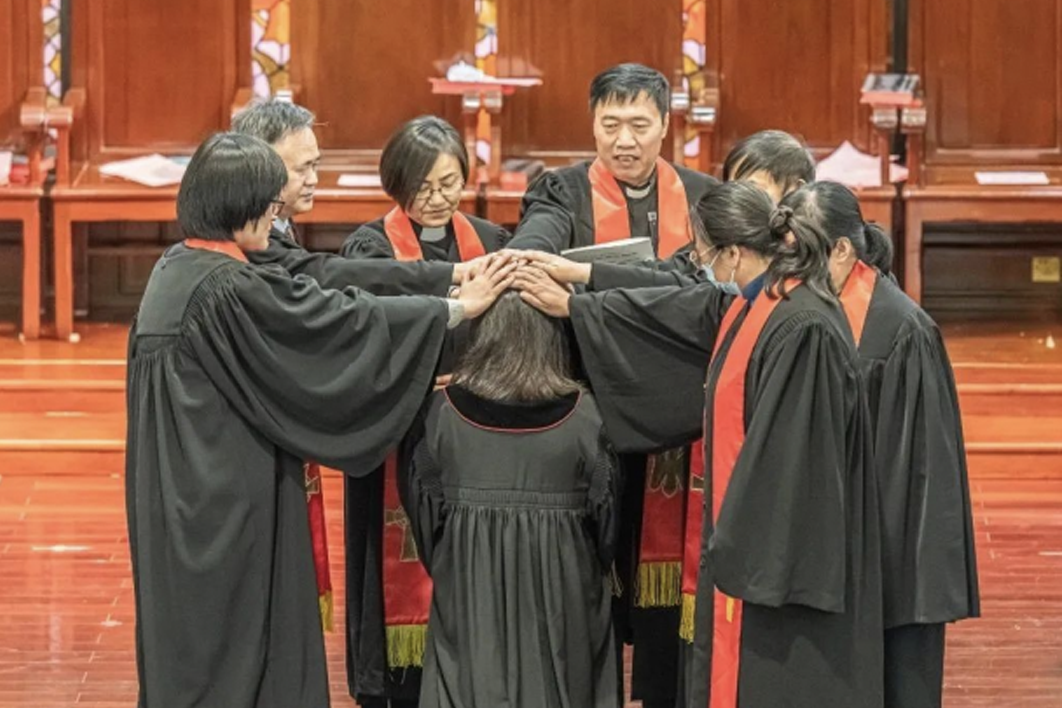A pastor in East China suggests that the influence of a church does not depend on the number of pastors, but rather on whether God has entrusted these persons with a mission and whether they have sufficient prestige and recognition among their brothers and sisters before being ordained.
In the late 1970s and early 1980s, the Chinese church reopened. In reviewing the history of the Chinese church over the past 40 years, Pastor Meng Mingcheng, who has been in full-time ministry for over 30 years, believes that the church must learn the lessons from this journey. Pastor Meng Mingcheng became a believer in the late 1980s in his hometown in Eastern China. The initial reason for his faith was due to the fact that his wife had become seriously ill and been declared critically ill by a hospital. She was even transferred to a morgue once. His sister didn't give up though and asked the church to pray for her brother’s wife. After much prayer, she was completely cured.
Pastor Meng said that the miracle his wife had experienced changed both of their families. His wife's parents had been idol worshipers. But after the miracle his wife experienced, they completely abandoned idols and that family became a gathering place for believers.
Later, Pastor Meng also became a Christian. After he became a believer, one of the elders used to take him along to gatherings. He knew that Meng was young and could read, so he found exegetical books for him. The Spirit of God then moved greatly and caused Meng to comprehend the true value of the Bible.
Soon, Pastor Meng gave up his secular job and began serving full-time in church. The Holy Spirit guided him to share much about a world that others had not yet seen nor heard. He received testimonies from many believers and pastors. In this way, his ministry journey has brought him all the way up to the present. In this long process, he has experienced the growth and development of believers and the church in general - as well as many hard lessons.
The 30 years that Pastor Meng has been in full-time ministry have been a period of rapid growth and development for the church in China. During these 30 years, he has seen churches suffer persecution and hardship – including the one he himself leads. In recalling this, Pastor Meng noted that when he joined the church, everyone seemed very simple and did not strive for fame or fortune. Everyone witnessed the Lord and brought many persons along to church. But in fact, people remained sinners; they gradually became less-and-less simple. For a long time, the church then regarded itself to be too important, and too high-profile.
Meng recalled that many churches had grown from small to large, expanding both in terms of the number of pastors and the number of believers. But such growth brought many problems with it. Some pastors said, "Thank God and the glory belongs to Him." But they did not realize that their hearts were changing slowly and unconsciously. Initially simple and humble, people became proud.
Pastor Meng says that when church leaders came together at that time, and although the meeting’s topic might be pastoral care, they would end up talking about how many churches and church workers each had. The leaders of large churches inadvertently exhibited pride and self-satisfaction, while the heads of smaller churches would respond with envy and jealousy. Among the many rivalries, what impressed Pastor Meng most was the strong competition between churches about the number of ordained ministers they had.
Pastor Meng said that it is a good and Biblical thing that many people were ordained. With more pastors, the church can grow more. However, he felt sad that people were competing to see whose church had ordained the most - that they were even fighting over such a serious matter as ordination. He advised others not to compare the number of people being ordained. Even if only 10 or 20 pastors are appointed, which is not a large number, it is most important that they be loyal to God's will and are accepted by the believers.
Pastor Meng said that at that time many churches were rather chaotic in terms of pastoral care, mainly because the criteria for pastoral ordination was unclear and the real situation of the ordained was poorly understood. The standard for ordination at that time was that a person should have served for at least 15 years. But the problem was that the churches responsible for ordination did not know the people who were going to be ordained. They did not know each other well and had to go by what the candidates said about themselves. Whether they enjoyed the approval of the church pastors and believers was not known. The candidates would of course claim they had received many positive testimonies about their service. Candidates would only mention their own good points and no one had the courage to mention their shortcomings.
Consequently, some ordained pastors are very good, but others do not have the approval and support of their fellow pastors and believers, which causes many difficulties. When there had been no ordained pastor earlier, the church was united. But after an ordained pastor arrived, strife ensued. Some co-workers felt they had given more and performed better than the ordained arrival, but had themselves been refused ordination. The ordained one had not served as long as others and did not have a positive testimony from the congregation but was nevertheless ordained. As a result, there are many opposing opinions and emotions regarding people and churches and many congregations end up being split. Such a lesson full of regrets and tears is very painful.
- Translated by Nicolas Cao












